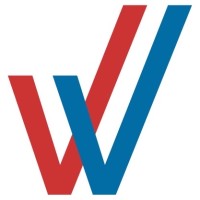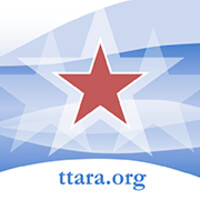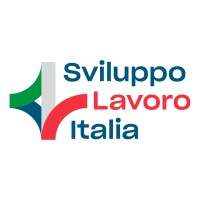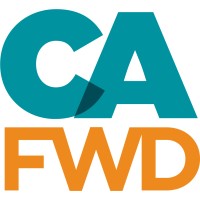Company Details
verified-voting-foundation
22
585
921
verifiedvoting.org
0
VER_1336021
In-progress

Verified Voting Foundation Company CyberSecurity Posture
verifiedvoting.orgWe work with election officials, policymakers, and democracy defenders across party lines to help voters vote and to promote policies that support justified public confidence in elections. Verified Voting’s mission is to strengthen democracy for all voters by promoting the responsible use of technology in elections. Since its founding, our team, Board of Directors, and Board of Advisors have been leading experts on relevant issues in election technology. Our collective technical knowledge has been foundational in understanding where vulnerabilities lie in our elections and in promoting policies and best practices that mitigate risks. We work to understand other experts in the field – experts in election administration because context matters for policy recommendations, experts in diverse voter experiences because not every voter has access to the ballot in the same way, and experts in voter outreach and education because ultimately this work is done for voters. The U.S. has moved toward broader and fairer access to voting, but not without contention and backlash. In this struggle, we are not neutral: we stand with voters. We repudiate attacks on voting rights couched as security measures and believe that security, resilience, and verifiability are integral to free and fair elections. And we recognize that some uses of election technology can systematically disenfranchise voters with disabilities, rural voters, and voters of color.
Company Details
verified-voting-foundation
22
585
921
verifiedvoting.org
0
VER_1336021
In-progress
Between 700 and 749

 VVF Global Score (TPRM)
VVF Global Score (TPRM)XXXX



No incidents recorded for Verified Voting Foundation in 2025.
No incidents recorded for Verified Voting Foundation in 2025.
No incidents recorded for Verified Voting Foundation in 2025.
VVF cyber incidents detection timeline including parent company and subsidiaries

We work with election officials, policymakers, and democracy defenders across party lines to help voters vote and to promote policies that support justified public confidence in elections. Verified Voting’s mission is to strengthen democracy for all voters by promoting the responsible use of technology in elections. Since its founding, our team, Board of Directors, and Board of Advisors have been leading experts on relevant issues in election technology. Our collective technical knowledge has been foundational in understanding where vulnerabilities lie in our elections and in promoting policies and best practices that mitigate risks. We work to understand other experts in the field – experts in election administration because context matters for policy recommendations, experts in diverse voter experiences because not every voter has access to the ballot in the same way, and experts in voter outreach and education because ultimately this work is done for voters. The U.S. has moved toward broader and fairer access to voting, but not without contention and backlash. In this struggle, we are not neutral: we stand with voters. We repudiate attacks on voting rights couched as security measures and believe that security, resilience, and verifiability are integral to free and fair elections. And we recognize that some uses of election technology can systematically disenfranchise voters with disabilities, rural voters, and voters of color.


The Texas Taxpayers and Research Association (TTARA) is the state’s pre-eminent association focusing on responsible state and local fiscal policy and how those policies impact the Texas economy. TTARA is a non-profit, membership-supported organization of both businesses and individuals. Our members

Today, far too many students leave our colleges and universities with crippling debt and little to show for it. Higher education institutions that should be engines of socio-economic mobility are instead fueling a divide of opportunity. Partners for College Affordability and Public Trust gives voic

Women in Informal Employment: Globalizing and Organizing (WIEGO) is a global action-research-policy network that seeks to improve the status of the working poor in the informal economy, especially women. WIEGO is comprised of organizations of informal workers and of individual researchers and dev

Dal 1 marzo 24, Anpal Servizi diventa Sviluppo Lavoro Italia, società del Ministero del Lavoro. Il nostro compito si concentra nello sviluppo e attuazione delle politiche attive nazionali e regionali. Tra i soggetti della rete dei servizi per il lavoro ci proponiamo come “cerniera fra Stato e Regio

Hosted by Angela Glover Blackwell, Founder-in-Residence at PolicyLink, Radical Imagination focuses on radical solutions to our society’s most pressing problems. It features conversations with thinkers and changemakers from multiple fields working to deliver equity wins at scale. Radical Imagination

California Forward (CA FWD) is a multi-partisan, non-profit organization building a New California Economy that is sustainable, resilient, and inclusive. We support economic growth using a regions-up approach, stewarding state resources, and building resilience in the face of a changing climate. Thi
.png)
The Mobile Voting Foundation, founded by political strategist and philanthropist Bradley Tusk, supports and maintains the development of...
A bill recently introduced in the New York legislature revives a discussion about how digital ledgers might improve election integrity.
American democracy is under attack—from cybercriminals and foreign adversaries seeking to undermine trust in our elections...
Republican secretaries of state asked Homeland Security Secretary Kristi Noem for changes to a data system that would allow them to check their voter rolls for...
A group of computer security experts have written to Vice President Kamala Harris to alert her to the fact that voting systems were breached by Trump allies in...
Election officials in swing states said vote-counting systems are typically on closed networks with no connection to the internet.
Election Day 2024 ended with tech issues, text message-based disinformation campaigns, printer issues and more physical security threats.
After partial passwords to voting machines in Colorado were discovered last week on a state website under a hidden tab of a spreadsheet,...
While people can look up your voter registration information, they cannot see who you voted for because it's private and protected under law...

Explore insights on cybersecurity incidents, risk posture, and Rankiteo's assessments.
The official website of Verified Voting Foundation is http://verifiedvoting.org.
According to Rankiteo, Verified Voting Foundation’s AI-generated cybersecurity score is 743, reflecting their Moderate security posture.
According to Rankiteo, Verified Voting Foundation currently holds 0 security badges, indicating that no recognized compliance certifications are currently verified for the organization.
According to Rankiteo, Verified Voting Foundation is not certified under SOC 2 Type 1.
According to Rankiteo, Verified Voting Foundation does not hold a SOC 2 Type 2 certification.
According to Rankiteo, Verified Voting Foundation is not listed as GDPR compliant.
According to Rankiteo, Verified Voting Foundation does not currently maintain PCI DSS compliance.
According to Rankiteo, Verified Voting Foundation is not compliant with HIPAA regulations.
According to Rankiteo,Verified Voting Foundation is not certified under ISO 27001, indicating the absence of a formally recognized information security management framework.
Verified Voting Foundation operates primarily in the Public Policy Offices industry.
Verified Voting Foundation employs approximately 22 people worldwide.
Verified Voting Foundation presently has no subsidiaries across any sectors.
Verified Voting Foundation’s official LinkedIn profile has approximately 585 followers.
Verified Voting Foundation is classified under the NAICS code 921, which corresponds to Executive, Legislative, and Other General Government Support.
No, Verified Voting Foundation does not have a profile on Crunchbase.
Yes, Verified Voting Foundation maintains an official LinkedIn profile, which is actively utilized for branding and talent engagement, which can be accessed here: https://www.linkedin.com/company/verified-voting-foundation.
As of November 28, 2025, Rankiteo reports that Verified Voting Foundation has not experienced any cybersecurity incidents.
Verified Voting Foundation has an estimated 1,023 peer or competitor companies worldwide.
Total Incidents: According to Rankiteo, Verified Voting Foundation has faced 0 incidents in the past.
Incident Types: The types of cybersecurity incidents that have occurred include .
.png)
Angular is a development platform for building mobile and desktop web applications using TypeScript/JavaScript and other languages. Prior to versions 19.2.16, 20.3.14, and 21.0.1, there is a XSRF token leakage via protocol-relative URLs in angular HTTP clients. The vulnerability is a Credential Leak by App Logic that leads to the unauthorized disclosure of the Cross-Site Request Forgery (XSRF) token to an attacker-controlled domain. Angular's HttpClient has a built-in XSRF protection mechanism that works by checking if a request URL starts with a protocol (http:// or https://) to determine if it is cross-origin. If the URL starts with protocol-relative URL (//), it is incorrectly treated as a same-origin request, and the XSRF token is automatically added to the X-XSRF-TOKEN header. This issue has been patched in versions 19.2.16, 20.3.14, and 21.0.1. A workaround for this issue involves avoiding using protocol-relative URLs (URLs starting with //) in HttpClient requests. All backend communication URLs should be hardcoded as relative paths (starting with a single /) or fully qualified, trusted absolute URLs.
Forge (also called `node-forge`) is a native implementation of Transport Layer Security in JavaScript. An Uncontrolled Recursion vulnerability in node-forge versions 1.3.1 and below enables remote, unauthenticated attackers to craft deep ASN.1 structures that trigger unbounded recursive parsing. This leads to a Denial-of-Service (DoS) via stack exhaustion when parsing untrusted DER inputs. This issue has been patched in version 1.3.2.
Forge (also called `node-forge`) is a native implementation of Transport Layer Security in JavaScript. An Integer Overflow vulnerability in node-forge versions 1.3.1 and below enables remote, unauthenticated attackers to craft ASN.1 structures containing OIDs with oversized arcs. These arcs may be decoded as smaller, trusted OIDs due to 32-bit bitwise truncation, enabling the bypass of downstream OID-based security decisions. This issue has been patched in version 1.3.2.
Suricata is a network IDS, IPS and NSM engine developed by the OISF (Open Information Security Foundation) and the Suricata community. Prior to versions 7.0.13 and 8.0.2, working with large buffers in Lua scripts can lead to a stack overflow. Users of Lua rules and output scripts may be affected when working with large buffers. This includes a rule passing a large buffer to a Lua script. This issue has been patched in versions 7.0.13 and 8.0.2. A workaround for this issue involves disabling Lua rules and output scripts, or making sure limits, such as stream.depth.reassembly and HTTP response body limits (response-body-limit), are set to less than half the stack size.
Suricata is a network IDS, IPS and NSM engine developed by the OISF (Open Information Security Foundation) and the Suricata community. In versions from 8.0.0 to before 8.0.2, a NULL dereference can occur when the entropy keyword is used in conjunction with base64_data. This issue has been patched in version 8.0.2. A workaround involves disabling rules that use entropy in conjunction with base64_data.

Get company history
















Every week, Rankiteo analyzes billions of signals to give organizations a sharper, faster view of emerging risks. With deeper, more actionable intelligence at their fingertips, security teams can outpace threat actors, respond instantly to Zero-Day attacks, and dramatically shrink their risk exposure window.
Identify exposed access points, detect misconfigured SSL certificates, and uncover vulnerabilities across the network infrastructure.
Gain visibility into the software components used within an organization to detect vulnerabilities, manage risk, and ensure supply chain security.
Monitor and manage all IT assets and their configurations to ensure accurate, real-time visibility across the company's technology environment.
Leverage real-time insights on active threats, malware campaigns, and emerging vulnerabilities to proactively defend against evolving cyberattacks.




